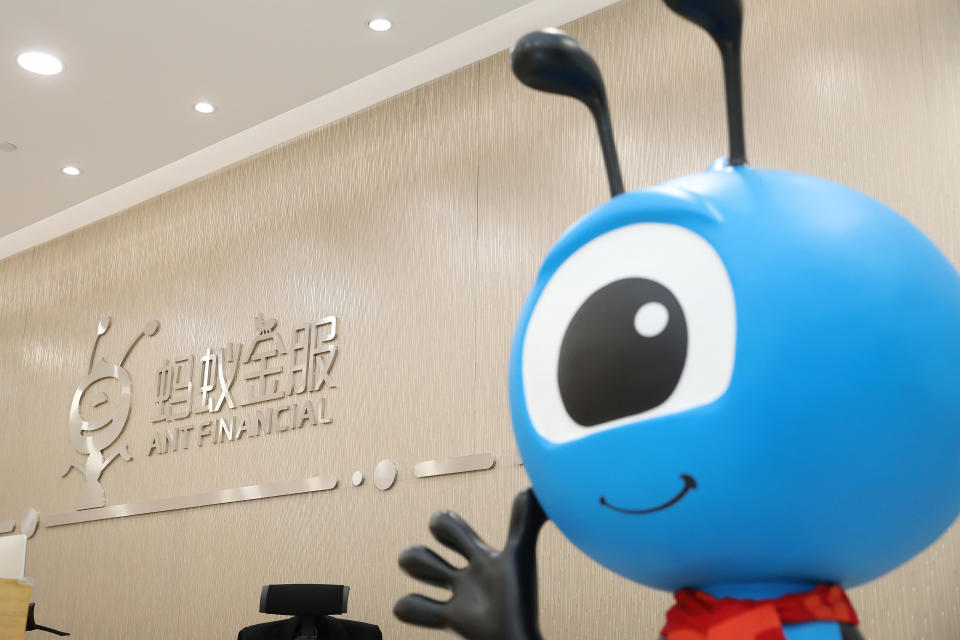Jack Ma's Ant Group files for blockbuster $225bn float

China’s dominant mobile payments firm, Ant Group, has unveiled plans for a dual-listing stock market debut in Hong Kong and on the Shanghai Stock Exchange's Star Market that is on track to become the largest initial public offering (IPO).
The financial technology group is seeking to go public in a move that could value it at $225bn (£171bn). Ant Group could raise as much as £30bn — with the mammoth deal expected to overtake the record £25.6bn raised in Saudi Aramco’s IPO in 2019.
While, the group has not yet revealed the size of its IPO or a timetable, it has been suggested the listing could take place in October, with the firm seeking up to 15% of a $200bn to $300bn valuation.
The group said it would use the funds raised to “further pursue” its “vision to digitalise the service industry,” in its stock market filing.
The group provided no reason for choosing the Hong Kong and Shanghai's Star board listing, but the announcement comes at a time of rising geopolitical tensions between China and the US amid president Donald Trump’s crack down on Chinese firms in America.
READ MORE: Alibaba tells Trump it supports American businesses
Trump recently increased pressure on Chinese tech firms in the US, with video-sharing app TikTok announcing earlier in the week it would sue the Trump administration over a ban, after the president signed two executive orders to ban TikTok and messaging platform WeChat.
In August, Trump issued an executive order that gives TikTok’s owner ByteDance 90 days to divest the US operation of TikTok; it has until 12 November.
The US accused the controversial video-sharing app of sharing data of American users with the Chinese government, TikTok denies handing over US data to the Chinese authorities — with Beijing blasting the ban as political.
In an interview with Fox News, the president raised the possibility of “decoupling” from China — a major purchaser of US goods — stating that the US was “not obliged” to do business with the country.
Meanwhile, in June US treasury secretary Steven Mnuchin said that a decoupling could happen if US firms were not allowed to compete on a level playing field in China.
To ease trade war tensions, China recently agreed to buy at least $200bn worth of American goods and services between 2020 and 2021. The two-way trade between the countries in 2019 was almost $559bn.
READ MORE: Microsoft reveals talks to buy TikTok, US, Canada, Australia and New Zealand
If the floatation is successful, it could open doors for other tech firms to follow suit, especially as Trump’s attacks on Chinese firms rage on.
Launched in 2004, Ant was founded by China’s richest man Jack Ma, who also co-founded e-commerce giant Alibaba (BABA), which owns a 33% share in Ant Group. The firm was spun off in 2014 to run Chinese digital payment service Alipay.
According to Bloomberg’s billionaires index, the 55-year-old is the 21st richest person in the world, with an estimated fortune of $53.5bn.
Revenues at Ant rose to $10.5bn in the first half of 2020 — up almost 40% from a year earlier — reporting a $3.2bn profit in the same period.
Headquartered in the Chinese city of Hangzhou, Ant’s services are used by more than 700 million people a month, with 80 million merchants using the services to buy insurance, pay bills and invest in mutual funds.
Alipay, which has around one billion users, overtook American rival PayPal (PYPL) as the world’s largest mobile payments provider six years ago. Last year it acquired UK payment firm World First.
Trump has been waging a trade war against China since taking office, attacking Beijing on the coronavirus pandemic as well as on technology, military and economic fronts.
Ahead of the 3 November elections, the US president who lags behind Democratic opponent Joe Biden in the polls, is campaigning on a stringent anti-China message.

 Yahoo Sports
Yahoo Sports 